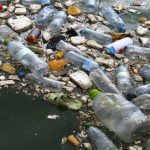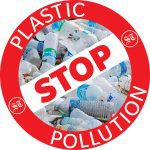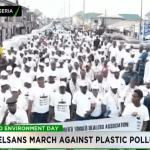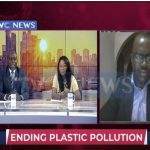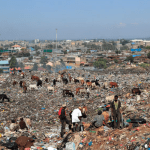A non-governmental organization community action against plastic waste has held a one day media capacity building forum on the role played by the media in ending plastic waste and achieving the global plastic treaty.
This workshop is also to equip the media on how to make information relevant and available to the public in respect to plastic waste.
One hundred and seventy five countries voted in March 2022 to develop a legally binding treaty on plastic pollution by 2024.
The global treaty will address the environmental and social externalities of the overproduction and pollution of plastic.
By 2024 it is expected that the treaty would have been concluded with a final text
If that happens, countries are expected to incorporate the treaty into national laws in 2025.
The treaty will address production, use, and disposal of plastics which contribute to the climate crisis and can cause significant harm to the human rights of people around the world.
It will also look at options of prohibiting plastic incineration, waste-to-energy processes, and chemical recycling and labeling
Today community action against plastic waste is holding one day capacity workshop on how the Media can support the advocacy for the Plastic Treaty
It has been identified that making information relevant and available to the public, creating an accountability system for governments, Exposing polluters and giving voice, to activists and affected communities can help achieve the domestication of the treaty.
Musa, a scavenger who collects pet bottles for a living, says he buys a pet bottle from provision stalls for N30 and resells it for N50 to black market vendors who sell kerosene.
A non-governmental organization community action against plastic waste has held a one day media capacity building forum on the role played by the media in ending plastic waste and achieving the global plastic treaty.
This workshop is also to equip the media on how to make information relevant and available to the public in respect to plastic waste.
One hundred and seventy five countries voted in March 2022 to develop a legally binding treaty on plastic pollution by 2024.
The global treaty will address the environmental and social externalities of the overproduction and pollution of plastic.
By 2024 it is expected that the treaty would have been concluded with a final text
If that happens, countries are expected to incorporate the treaty into national laws in 2025.
The treaty will address production, use, and disposal of plastics which contribute to the climate crisis and can cause significant harm to the human rights of people around the world.
It will also look at options of prohibiting plastic incineration, waste-to-energy processes, and chemical recycling and labeling
Today community action against plastic waste is holding one day capacity workshop on how the Media can support the advocacy for the Plastic Treaty
It has been identified that making information relevant and available to the public, creating an accountability system for governments, Exposing polluters and giving voice, to activists and affected communities can help achieve the domestication of the treaty.
Musa, a scavenger who collects pet bottles for a living, says he buys a pet bottle from provision stalls for N30 and resells it for N50 to black market vendors who sell kerosene.
A non-governmental organization community action against plastic waste has held a one day media capacity building forum on the role played by the media in ending plastic waste and achieving the global plastic treaty.
This workshop is also to equip the media on how to make information relevant and available to the public in respect to plastic waste.
One hundred and seventy five countries voted in March 2022 to develop a legally binding treaty on plastic pollution by 2024.
The global treaty will address the environmental and social externalities of the overproduction and pollution of plastic.
By 2024 it is expected that the treaty would have been concluded with a final text
If that happens, countries are expected to incorporate the treaty into national laws in 2025.
The treaty will address production, use, and disposal of plastics which contribute to the climate crisis and can cause significant harm to the human rights of people around the world.
It will also look at options of prohibiting plastic incineration, waste-to-energy processes, and chemical recycling and labeling
Today community action against plastic waste is holding one day capacity workshop on how the Media can support the advocacy for the Plastic Treaty
It has been identified that making information relevant and available to the public, creating an accountability system for governments, Exposing polluters and giving voice, to activists and affected communities can help achieve the domestication of the treaty.
Musa, a scavenger who collects pet bottles for a living, says he buys a pet bottle from provision stalls for N30 and resells it for N50 to black market vendors who sell kerosene.
A non-governmental organization community action against plastic waste has held a one day media capacity building forum on the role played by the media in ending plastic waste and achieving the global plastic treaty.
This workshop is also to equip the media on how to make information relevant and available to the public in respect to plastic waste.
One hundred and seventy five countries voted in March 2022 to develop a legally binding treaty on plastic pollution by 2024.
The global treaty will address the environmental and social externalities of the overproduction and pollution of plastic.
By 2024 it is expected that the treaty would have been concluded with a final text
If that happens, countries are expected to incorporate the treaty into national laws in 2025.
The treaty will address production, use, and disposal of plastics which contribute to the climate crisis and can cause significant harm to the human rights of people around the world.
It will also look at options of prohibiting plastic incineration, waste-to-energy processes, and chemical recycling and labeling
Today community action against plastic waste is holding one day capacity workshop on how the Media can support the advocacy for the Plastic Treaty
It has been identified that making information relevant and available to the public, creating an accountability system for governments, Exposing polluters and giving voice, to activists and affected communities can help achieve the domestication of the treaty.
Musa, a scavenger who collects pet bottles for a living, says he buys a pet bottle from provision stalls for N30 and resells it for N50 to black market vendors who sell kerosene.
A non-governmental organization community action against plastic waste has held a one day media capacity building forum on the role played by the media in ending plastic waste and achieving the global plastic treaty.
This workshop is also to equip the media on how to make information relevant and available to the public in respect to plastic waste.
One hundred and seventy five countries voted in March 2022 to develop a legally binding treaty on plastic pollution by 2024.
The global treaty will address the environmental and social externalities of the overproduction and pollution of plastic.
By 2024 it is expected that the treaty would have been concluded with a final text
If that happens, countries are expected to incorporate the treaty into national laws in 2025.
The treaty will address production, use, and disposal of plastics which contribute to the climate crisis and can cause significant harm to the human rights of people around the world.
It will also look at options of prohibiting plastic incineration, waste-to-energy processes, and chemical recycling and labeling
Today community action against plastic waste is holding one day capacity workshop on how the Media can support the advocacy for the Plastic Treaty
It has been identified that making information relevant and available to the public, creating an accountability system for governments, Exposing polluters and giving voice, to activists and affected communities can help achieve the domestication of the treaty.
Musa, a scavenger who collects pet bottles for a living, says he buys a pet bottle from provision stalls for N30 and resells it for N50 to black market vendors who sell kerosene.
A non-governmental organization community action against plastic waste has held a one day media capacity building forum on the role played by the media in ending plastic waste and achieving the global plastic treaty.
This workshop is also to equip the media on how to make information relevant and available to the public in respect to plastic waste.
One hundred and seventy five countries voted in March 2022 to develop a legally binding treaty on plastic pollution by 2024.
The global treaty will address the environmental and social externalities of the overproduction and pollution of plastic.
By 2024 it is expected that the treaty would have been concluded with a final text
If that happens, countries are expected to incorporate the treaty into national laws in 2025.
The treaty will address production, use, and disposal of plastics which contribute to the climate crisis and can cause significant harm to the human rights of people around the world.
It will also look at options of prohibiting plastic incineration, waste-to-energy processes, and chemical recycling and labeling
Today community action against plastic waste is holding one day capacity workshop on how the Media can support the advocacy for the Plastic Treaty
It has been identified that making information relevant and available to the public, creating an accountability system for governments, Exposing polluters and giving voice, to activists and affected communities can help achieve the domestication of the treaty.
Musa, a scavenger who collects pet bottles for a living, says he buys a pet bottle from provision stalls for N30 and resells it for N50 to black market vendors who sell kerosene.
A non-governmental organization community action against plastic waste has held a one day media capacity building forum on the role played by the media in ending plastic waste and achieving the global plastic treaty.
This workshop is also to equip the media on how to make information relevant and available to the public in respect to plastic waste.
One hundred and seventy five countries voted in March 2022 to develop a legally binding treaty on plastic pollution by 2024.
The global treaty will address the environmental and social externalities of the overproduction and pollution of plastic.
By 2024 it is expected that the treaty would have been concluded with a final text
If that happens, countries are expected to incorporate the treaty into national laws in 2025.
The treaty will address production, use, and disposal of plastics which contribute to the climate crisis and can cause significant harm to the human rights of people around the world.
It will also look at options of prohibiting plastic incineration, waste-to-energy processes, and chemical recycling and labeling
Today community action against plastic waste is holding one day capacity workshop on how the Media can support the advocacy for the Plastic Treaty
It has been identified that making information relevant and available to the public, creating an accountability system for governments, Exposing polluters and giving voice, to activists and affected communities can help achieve the domestication of the treaty.
Musa, a scavenger who collects pet bottles for a living, says he buys a pet bottle from provision stalls for N30 and resells it for N50 to black market vendors who sell kerosene.
A non-governmental organization community action against plastic waste has held a one day media capacity building forum on the role played by the media in ending plastic waste and achieving the global plastic treaty.
This workshop is also to equip the media on how to make information relevant and available to the public in respect to plastic waste.
One hundred and seventy five countries voted in March 2022 to develop a legally binding treaty on plastic pollution by 2024.
The global treaty will address the environmental and social externalities of the overproduction and pollution of plastic.
By 2024 it is expected that the treaty would have been concluded with a final text
If that happens, countries are expected to incorporate the treaty into national laws in 2025.
The treaty will address production, use, and disposal of plastics which contribute to the climate crisis and can cause significant harm to the human rights of people around the world.
It will also look at options of prohibiting plastic incineration, waste-to-energy processes, and chemical recycling and labeling
Today community action against plastic waste is holding one day capacity workshop on how the Media can support the advocacy for the Plastic Treaty
It has been identified that making information relevant and available to the public, creating an accountability system for governments, Exposing polluters and giving voice, to activists and affected communities can help achieve the domestication of the treaty.
Musa, a scavenger who collects pet bottles for a living, says he buys a pet bottle from provision stalls for N30 and resells it for N50 to black market vendors who sell kerosene.



